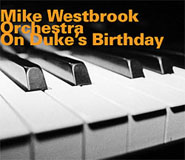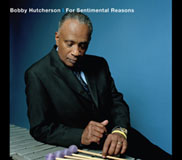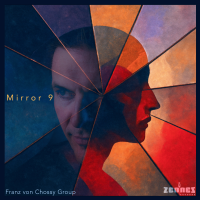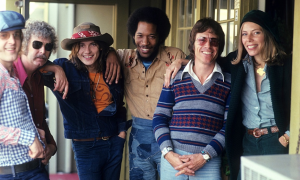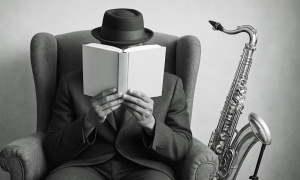Home » Jazz Articles » Profile » Joe Hunt
Joe Hunt
It all started with "a big break in 1960," recalled Hunt. "George Russell had met [trombonist and fellow Indiana native] David Baker at the Lenox School of Jazz in '59 and Baker recommended me when Russell was looking to form a studio band" the following year. It was a huge break for the young drummer, as Hunt went on to recount: "There were a lot of great drummers in Indianapolis at the time, but they couldn't read well—so I got the job." Years of classical training no doubt helped the 21-year-old interpret Russell's famously difficult music with its snaking lines and odd rhythms, winning him the gig that would change his life.
By way of the Lenox School, Hunt arrived in New York with a steady gig in one of the best groups in jazz. Playing nightly with Eric Dolphy, trumpeter Don Ellis and bassist Chuck Israels and recording on The Stratus Seekers, Ezz-Thetics and The George Russell Sextet at The Five Spot, Hunt began to attract a following. His emphatic swing and deft ensemble work made a strong impression on Israels, who in turn introduced Hunt to Bill Evans and Stan Getz. "Chuck set up the Getz gig in 1964," recalled Hunt, referring to his two year stint with the saxophonist, and set up an audition for Bill Evans' trio in '66, which led to a year's work with the pianist.
Israels and Hunt also played in pianist Don Friedman's trio in the early '60s, establishing an easy rapport that is apparent on A Day In The City—Friedman's 1961 debut for Riverside. "We used to rehearse at Don's East Side apartment every Wednesday," said Hunt, "and I pestered [Riverside A&R man] Orrin Keepnews to give Don a record date." The resulting session—while commercially unsuccessful—was a rousing artistic success, a precursor to the work that Israels and Hunt would later do with Evans. Despite the success, the group went its separate ways soon after completing A Day In The City, playing together periodically before Hunt made a move to Boston in 1971 to teach at Berklee School of Music.
"I was looking for security," said the drummer when asked about the relocation, "teaching was a long shot." With a growing family and bills to pay, the 30-something freelancer jumped at the chance to get "off the road and make some steady money" in Boston and he wasn't alone. The scene was changing in the late '60s and early '70s; jobs were scarce and the prospect of teaching at a college was appealing to many struggling musicians, even if it seemed foreign. Vibraphonist Gary Burton—a close friend—had already decided to join the faculty at Berklee when he brought the drummer to play a gig at the school—it was the beginning of a 30-year tenure for Hunt.
Except for a brief sojourn to Harrisburg, PA a few years back, Joe Hunt has spent the last 35 in Boston with few regrets. "The scene in Boston is transient, [but] I'm lucky to have a lot of gigs," he said. The now-retired professor is still the first-call drummer in the city, gigging with old friends and former students around town and at Berklee. "The music lives in the academy," said Hunt with a hint of resignation when asked about his teaching career. "It may have lost a little of its guts, but at least it's being played." During his tenure, Hunt has mentored some of the brightest stars in jazz today, including John Scofield, who played with Hunt while he was still a student.
"The only problem with forming groups with students was that everyone ends up going to New York City," said Hunt of his role as mentor/collaborator. Today—as always—New York is a mecca for legions of aspiring musicians from around the world and few can resist the siren's song. At 68, Hunt still admits to feeling the pull of The Apple, "I sometimes regret leaving New York in '71," he candidly admitted over the phone.
Luckily for fans in the city, Hunt will be returning for a night at The Kitano next month with Don Friedman and Chuck Israels, a rare opportunity to hear the classic trio that recorded A Day In The City and the first time the group has played together since disbanding in the '60s. "I see Don periodically, but Chuck hasn't seen either of us in a long time," admitted Hunt, seeming genuinely excited to be playing with the trio after so long. Fans have waited decades for the reunion and it promises to be nothing short of a magical evening.
Recommended Listening:
· George Russell, Ezz-thetics (Riverside-OJC, 1961)
· Don Friedman, A Day in the City (Riverside, 1961)
· Stan Getz, Nobody Else But Me (Verve, 1964)
· Tony Zano, In Retrospect (Mark, 1983)
· Bert Seager, Because They Can (Antilles, 1987)
· Joe Hunt, Trio (Dreambox Media, 2002)
Tags
PREVIOUS / NEXT
Support All About Jazz
 All About Jazz has been a pillar of jazz since 1995, championing it as an art form and, more importantly, supporting the musicians who make it. Our enduring commitment has made "AAJ" one of the most culturally important websites of its kind, read by hundreds of thousands of fans, musicians and industry figures every month.
All About Jazz has been a pillar of jazz since 1995, championing it as an art form and, more importantly, supporting the musicians who make it. Our enduring commitment has made "AAJ" one of the most culturally important websites of its kind, read by hundreds of thousands of fans, musicians and industry figures every month.

